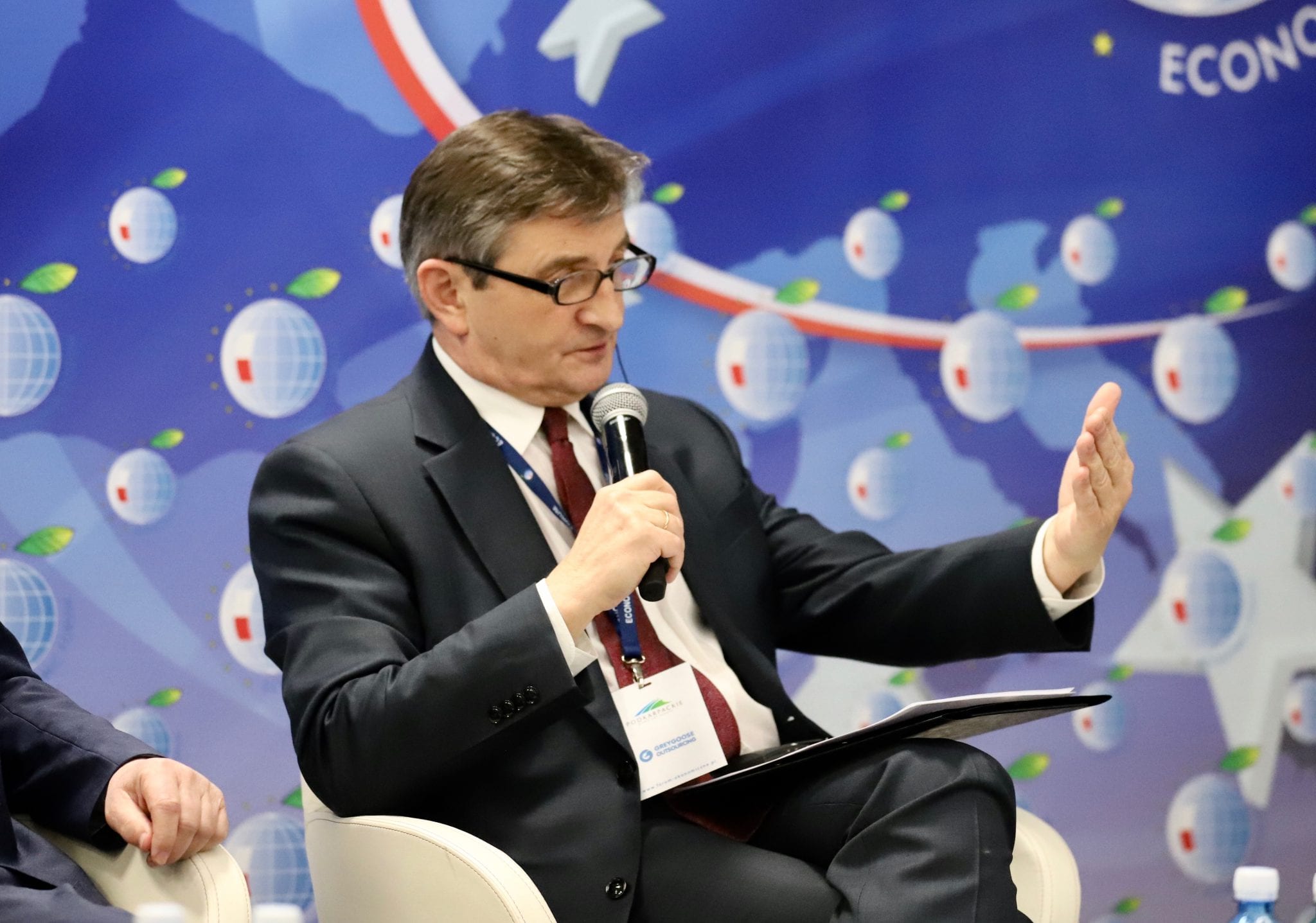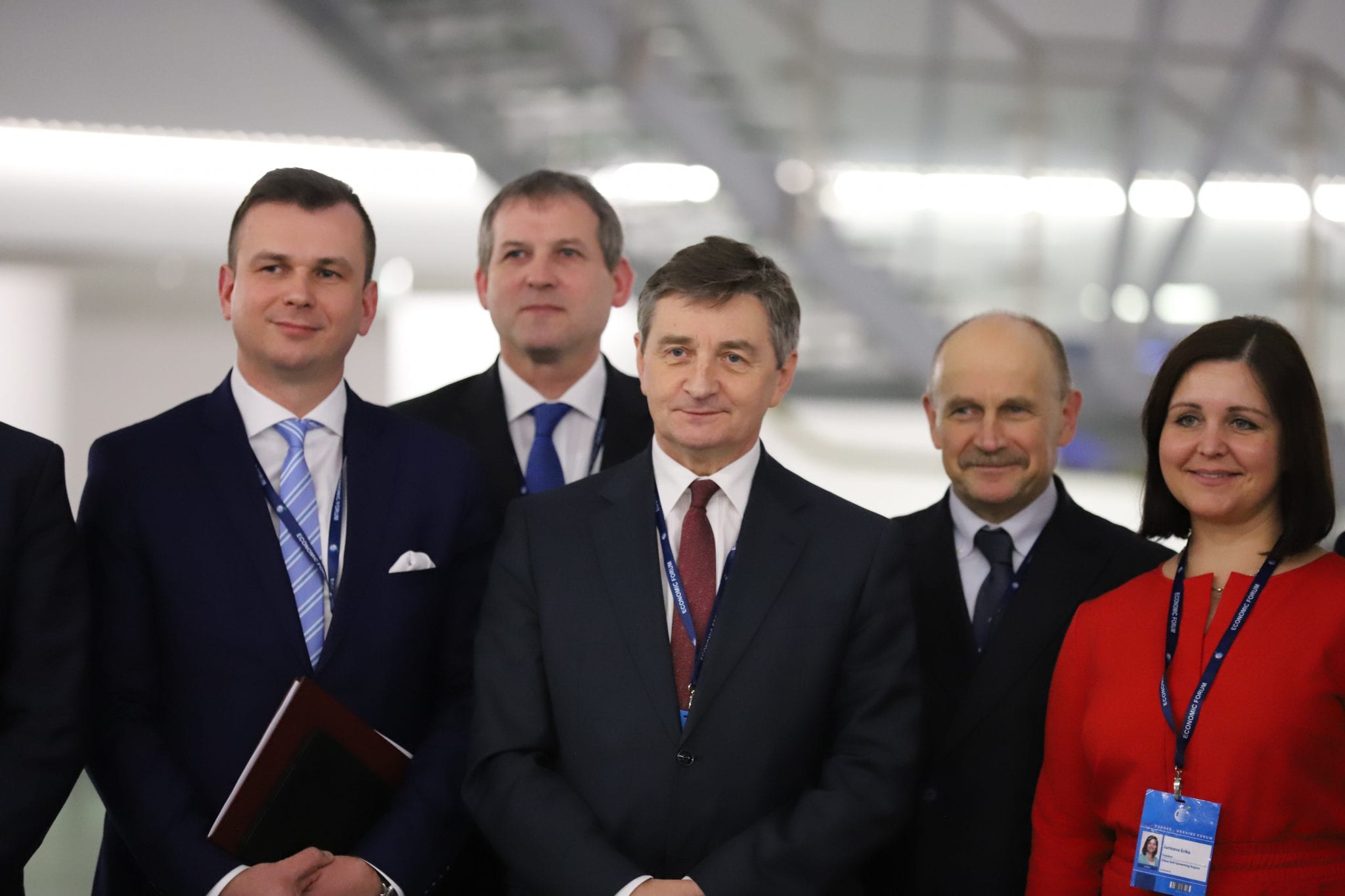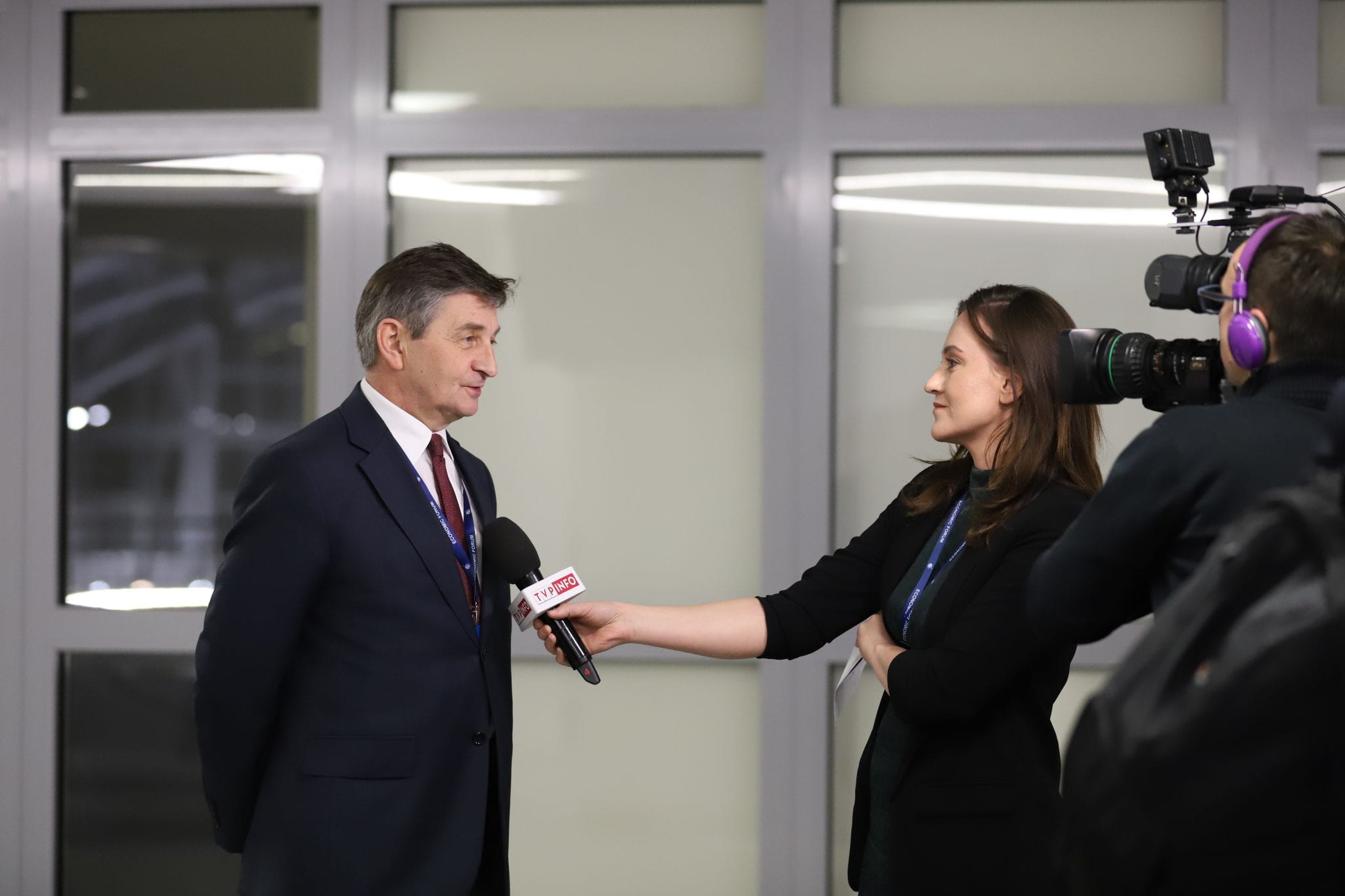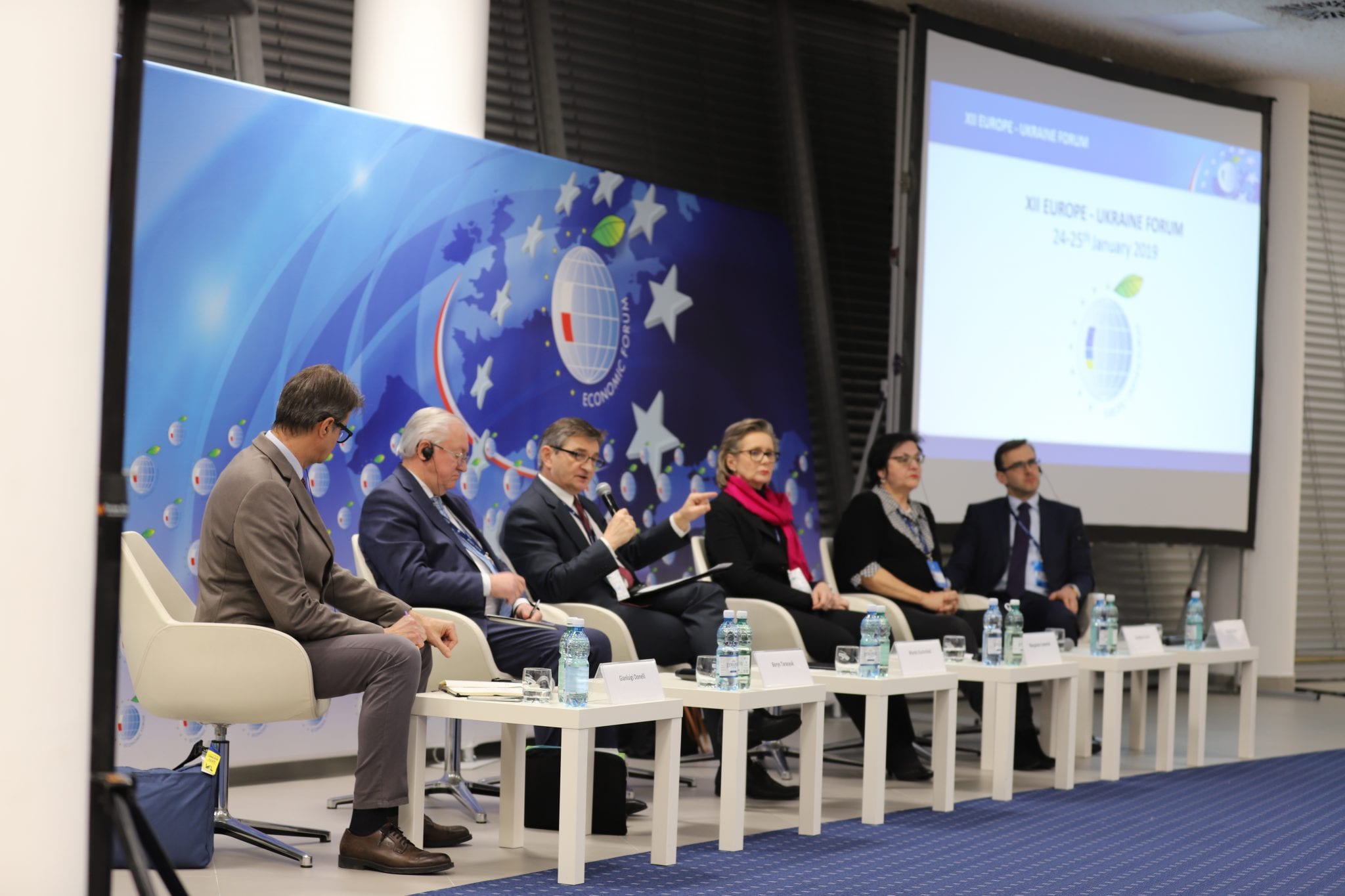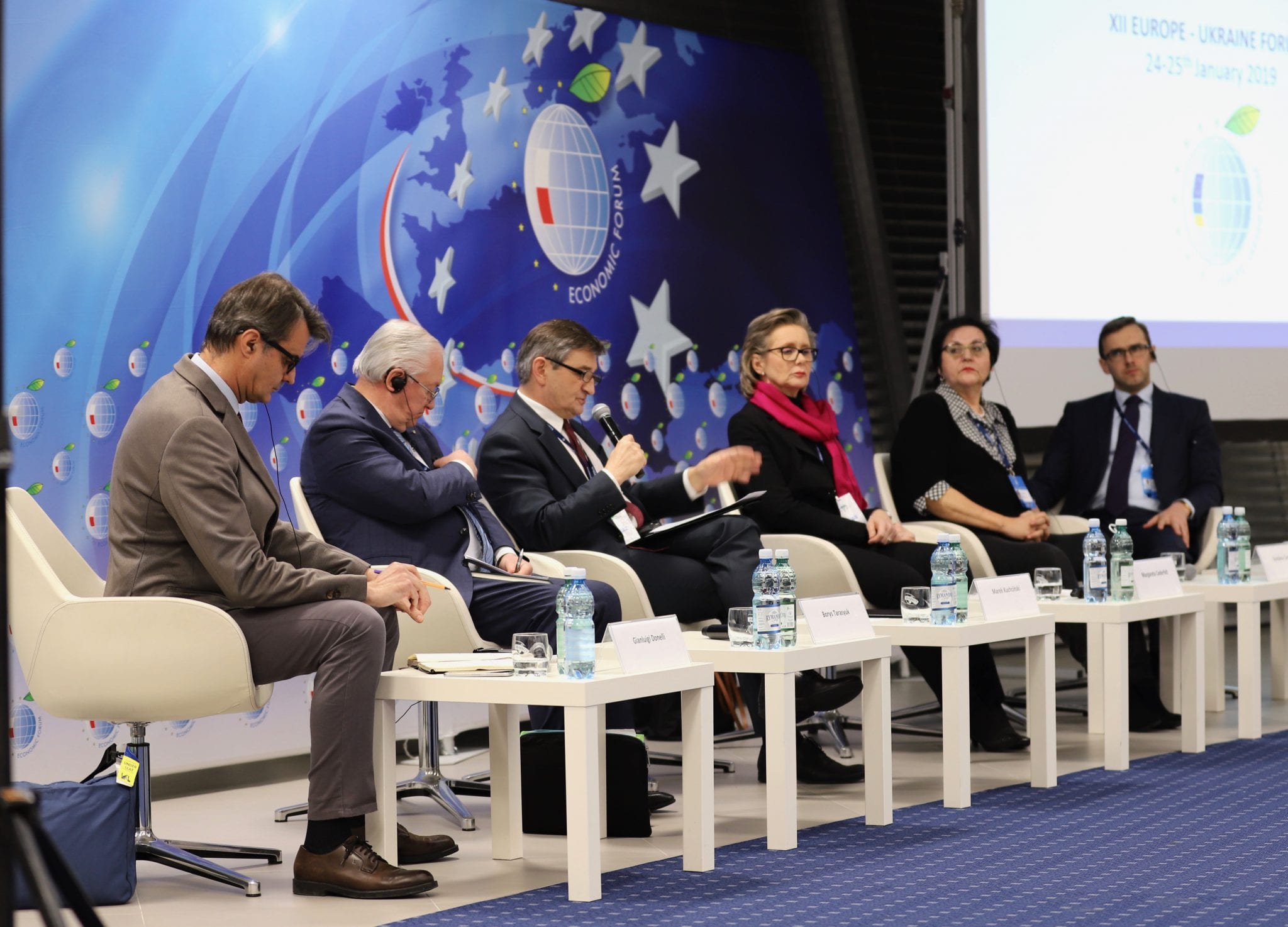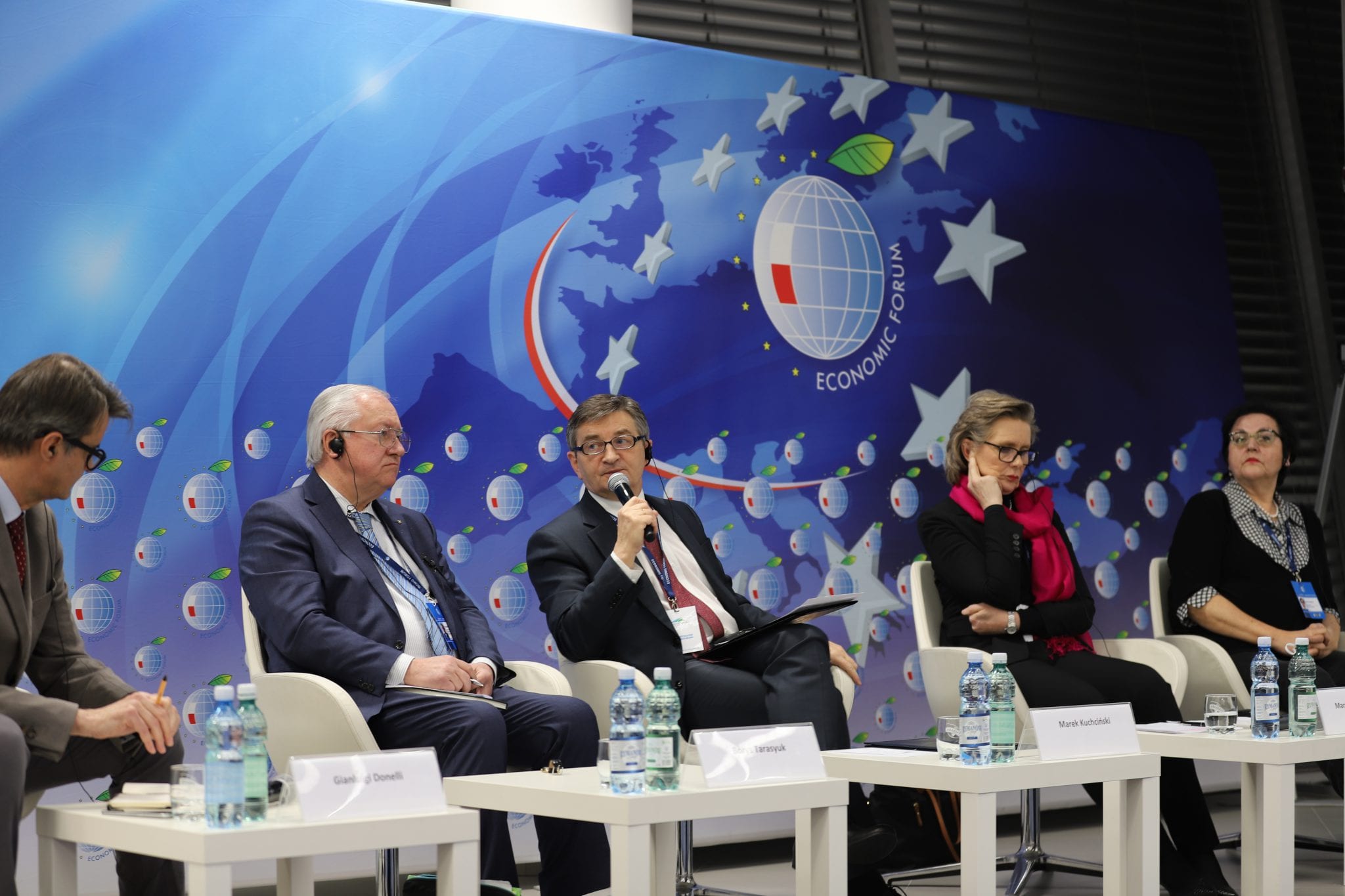The 12th Europe-Ukraine Forum concluded in Jasionka near Rzeszów. The plenary session, attended by Speaker of the Sejm Marek Kuchcinski, focused on the political and economic challenges facing Central and Eastern Europe.
Marek Kuchcinski stressed that regional cooperation of the last 30 years has produced great results in Central Europe. - Let's develop it, strengthen and support each other, and as partners of the strongest, we will give a chance to build stability faster. The word cooperation is key in the Visegrad Group's relations. If it were not for it, we would be played by the major powers in Europe," the Speaker said.
The Visegrad countries are today the most important trading partner for the EU's largest economy, Germany. More important than France; 2x that of the UK; growing over the past decade at an average rate as much as 5x higher than that of the western EU countries (2.7% to 0.5%).
According to Kuchcinski, the European Union is going through a number of serious crises, such as Brexit, the financial crisis and migration... To some of these, the V4 has given an answer, which has been adopted by the EU. Unfortunately, the Union is not oriented towards cooperation, but division - it is creating a Eurozone, a first circle, a second circle, and the strong players want to dominate the weaker ones. I think this is a mistake that will lead to further disputes. I'm for a union of sovereign states, not federalization.
The Speaker noted that the European Union should be in solidarity, especially in difficult situations, and take greater care of security across Europe. The lack of solidarity, the failure to find a recipe for resolving the conflict can be seen in the example of the EU's ineffective involvement in the war in Ukraine or the energy security gambit - Nord Stream 2, where, on the one hand, the EU wants to support Ukraine, on the other, it agrees with Russia on a gas pipeline, the construction of which will deprive Ukraine of its independence from Russia, which is the biggest threat here. The construction of NS2 will mainly hit Central Europe and the Balkan states.
Marek Kuchcinski stressed that thanks to the great daily work of its own citizens, Poland has had steady economic growth since mid-1992, comparable only to the so-called economic miracle in Germany and Austria. Last year's growth of over 5% of GDP speaks for itself.
Today, Poland is the 20th economy in the world, with a similar strength of the army, which is well illustrated by the great involvement in peacekeeping missions around the world in recent years. Year after year, internal security is growing, the number of murders and rapes is falling. A country of tolerance, where, for example, the appearance of about 2 million citizens of another country in a short period of time has not caused any social upheaval.
Presenting the strengths of Eastern Europe, the Speaker of the Sejm said that thanks to painful experiences, such as Munich 1938, Yalta, 1956 and 1968 and many more, as Poles, Slovaks and other nations of our part of Europe have learned to think, and therefore also to cooperate, knowing that Central Europe will be what we want it to be, or it will not be, in the sense that Central Europe will simply become part of one sphere of influence or another, a buffer zone of the superpowers.
During the panel, Marek Kuchcinski also presented our country's other strengths. - Never before in the history of the EEC, and later the EU, have structural funds been used so well as countries in our part of Europe, including Poland, are doing, he said. - The PISA knowledge tests (international assessment of students' skills after 15) carried out among young people in the world's most developed countries, i.e. countries grouped in the OECD, show that young Poles, like young Slovaks and Czechs, do not deviate in any way from their German or French peers in terms of language or mathematical skills. And if they are standing out, it is only in the sense that they are improving their performance in texts every year, unlike the aforementioned young people from France or Germany.
The Speaker stressed that our north-south transport links are still almost 10x less efficient than in the western part of the continent, border crossings in the Visegrad area are located on average every 30 km from each other, not 2.5 km from each other as in the western part of the EU.
Speakers from Sweden, Serbia and Slovakia also stressed that the Union must be in solidarity, dialogue is most important. European unity must be fought for, and Ukraine, suffering from Russian aggression, must be supported.
photo / text M. Olejnik


